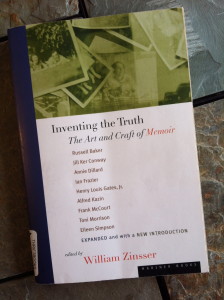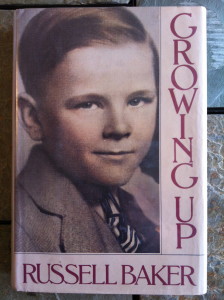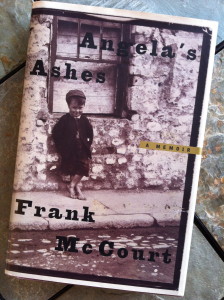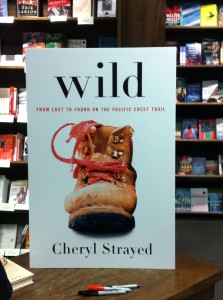It’s closing in on the two-year anniversary of my mother’s death: November 2, three days after she turned 75 years old, from the terminal cancer she had been diagnosed with ten weeks earlier. 
The weekend of her funeral, between afternoon and evening visiting hours, my father took the family and close friends out to dinner at a nearby French restaurant that he and my mother had frequented together. I remember much about the meal, which was spectacular, and the company, which was warm and beautiful. It was difficult to return to the funeral home afterward.
Last year my father held what he refers to as a “commemorative celebration of life” on the first anniversary of my mother’s death, at the same French restaurant. This is in vogue now, I guess, commemorating one’s life-after-death as you would a birthday. When someone asked Jan if she was having a celebration-of-life on the first anniversary of Greg’s death, she was taken aback. I don’t blame her. The idea of it is rather new, like formal gowns and limos for eighth-grade graduation, and it takes some getting used to.
Last year I wasn’t emotionally ready to join my family for the first anniversary of my mother’s death.
This year, I am.
Except a few days ago I had to tell my father I can’t make it because our band has a show the night of the 2nd. As I have so many times since moving from Ohio to Wisconsin, I want to be in Cleveland at the same time I want to be in Milwaukee.
Story of my life.

There are two books in my office: Young, White, and Miserable: Growing Up Female in the Fifties by Wini Breines, and Volume 37 of the literary journal Women’s Studies Quarterly, published in Fall/Winter 2009. It is a special issue titled Mother.
I bought them last year to help learn more about my mother, because after she died, I realized that I really didn’t know that much about her – her hopes, fears, dreams, joys.
At the funeral home, my father had lined up dozens of pictures of my mother in chronological order on tables along one wall.
My mother was a pretty woman, even in her seventies. But I didn’t know what a great dresser she was when she was young. And that she had such a knockout bod. In one picture she’s wearing a Sixties bikini, and she has abs. After four kids! In a shot of her and me on a blanket in a park, there is no mistaking that she was absolutely in love with her baby girl.
Most of the pictures I had never, ever seen before. “Who is this person?” I kept wondering as I looked at the photos for the fifth, tenth, fifteenth times. I tried filling in the blanks of what I knew with what I saw before me.
To the right of my mother’s coffin was a table with photos of her at the end of her life: her last vacation out East;  my brother’s wedding, just six months earlier; curled up on the family room sofa, just days before her death.
my brother’s wedding, just six months earlier; curled up on the family room sofa, just days before her death.
The very last photo was a medium shot of my mother in the backyard of my childhood home, where my father still lives. I remember being there. She is making a face and giving the camera (the photographer) the finger.
That shot being positioned as the exclamation point of her life was sheer brilliance on my father’s part, and I will always love him for that.
So far I’ve read very little of Mother and Young, White, and Miserable. I don’t think they will help me understand who my mother was. I wish I had pressed her more when she was alive. Knowing what I know now, I would just come out with it: “So what are your hopes, fears, dreams, and joys anyway?”
Not that she would tell me. I know better than that. She has always been, and always will be, an almost complete mystery to me.
The one thing I do know a lot about is our relationship. I am an expert in the effects it had, still has, and probably always will have on me.
 I want to be like author Cheryl Strayed, whose own mother died of cancer, and who explores their relationship in her wonderful memoir Wild. I met her last year; in interviews she has said that she considers writing about her mother her life’s work. I don’t know exactly how I will write about my own mother, but I’m happy with the way I’ve started. Like Russell Baker, who writes about his relationship with his mother in Growing Up, anything I write falls flat without her in it. Like Frank McCourt, who wrote about his mother in Angela’s Ashes, I’ve tried writing fiction, but “reality [keeps] intruding.”
I want to be like author Cheryl Strayed, whose own mother died of cancer, and who explores their relationship in her wonderful memoir Wild. I met her last year; in interviews she has said that she considers writing about her mother her life’s work. I don’t know exactly how I will write about my own mother, but I’m happy with the way I’ve started. Like Russell Baker, who writes about his relationship with his mother in Growing Up, anything I write falls flat without her in it. Like Frank McCourt, who wrote about his mother in Angela’s Ashes, I’ve tried writing fiction, but “reality [keeps] intruding.”
So I have decided to throw up my arms and embrace truth—or, as Baker and McCourt state in the 1998 edition of Inventing the Truth: The Art and Craft of Memoir, edited by William Zinsser, a version of the truth. Maybe not “the” truth. But my truth.
I don’t necessarily need to know everything about my mom to do this. I know enough. Including that we both are the kind of chicks who give the camera the finger. And have husbands with very good senses of humor.
Invalid Displayed Gallery

“anything I write falls flat without her in it.”
Right there with you.
Love this.
Thank you, fellow writer. Much love.
Write it. I have a feeling once you start, it will write itself; it will be cathartic; it will come out with no small amount of pain, like giving birth to a child; but, it will bring with it all of those same mixed feelings of intense pain and intense joy.
Love what you wrote. Thank you, J.